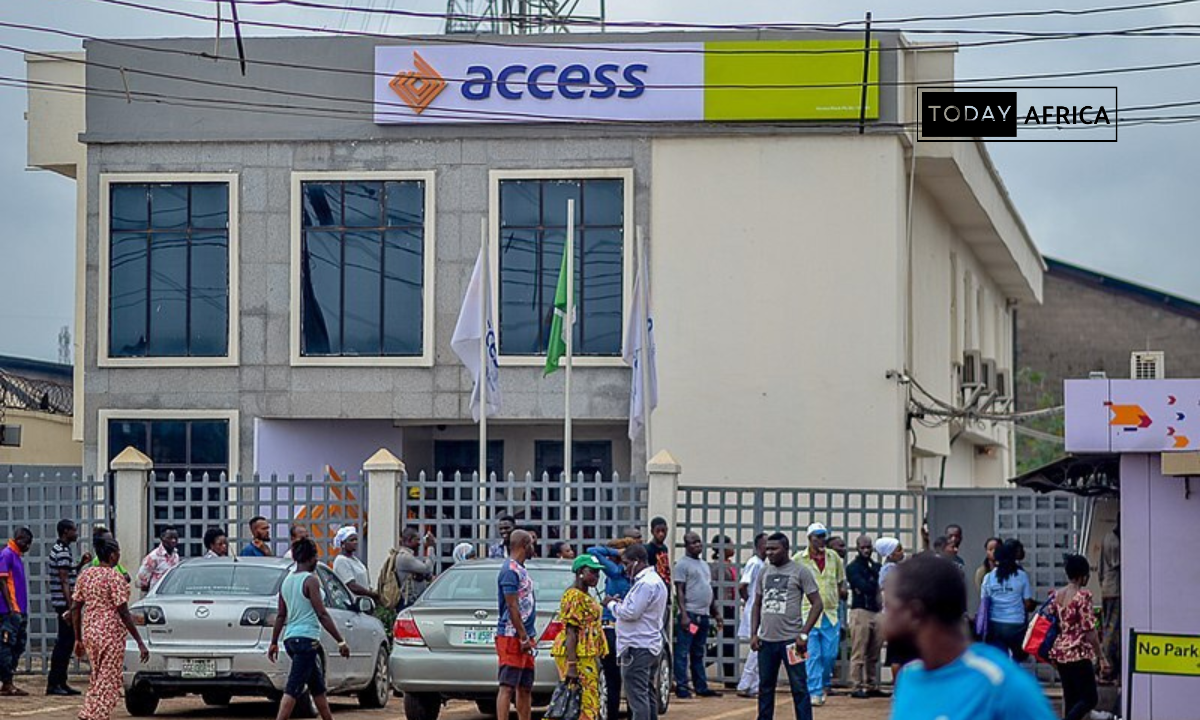The tech industry in developing countries holds immense potential for innovation, growth, and impact.
With a rapidly growing population, increased access to mobile technology, and a rising middle class, developing countries present fertile ground for tech startups.
The challenges faced by these nations – such as inadequate infrastructure, limited access to essential services, and economic disparities can be transformed into opportunities for technological solutions.
This article explores a variety of tech startup ideas for developing countries, focusing on sectors like education, healthcare, agriculture, financial services, and e-commerce.
15 Tech Startup Ideas for Developing Countries
1. E-learning platforms
Access to quality education remains a significant challenge in many developing countries. Factors like inadequate infrastructure, lack of qualified teachers, and limited educational resources hinder the learning process, especially in rural areas.
An e-learning platform tailored to the specific needs of developing countries can bridge the educational gap. The platform can offer courses in local languages, provide offline access to content, and include interactive tools that cater to various learning styles. Additionally, partnerships with local educational institutions and governments can help standardize content and ensure relevance.
Features:
- Localized content: Courses in regional languages and aligned with local curricula.
- Offline access: Downloadable content for students with limited internet connectivity.
- Interactive learning: Use of videos, quizzes, and gamification to enhance engagement.
- Teacher training: Modules that train teachers in digital literacy and effective use of technology in the classroom.
Revenue can be generated through subscriptions, government contracts, and advertising. The platform can also offer premium courses or certifications for a fee.
2. Telemedicine services
Healthcare access is often limited in developing countries, particularly in remote areas. Telemedicine can help address this issue by connecting patients with healthcare providers through digital platforms.
A telemedicine service that connects patients in remote areas with doctors in urban centers or even abroad. The service can include virtual consultations, prescription services, and follow-up care. Additionally, the platform can offer health education and preventive care information.
Features:
- Virtual consultations: Video or audio consultations with doctors.
- Prescription services: E-prescriptions that can be filled at local pharmacies.
- Health education: Information on preventive care, nutrition, and common illnesses.
- Data security: Ensuring patient data is secure and compliant with regulations.
The platform can charge for consultations, partner with healthcare providers, and offer subscription services for ongoing care. There can also be a freemium model where basic consultations are free, and specialized care is paid.
3. Agritech solutions
Agriculture is the backbone of many developing economies, yet farmers often face challenges like poor yield, lack of market access, and inefficient supply chains.

An agritech platform that provides farmers with real-time information on weather, crop prices, and best practices. The platform can also offer access to microloans, supply chain management tools, and direct-to-consumer sales channels.
Features:
- Weather alerts: Real-time weather forecasts and alerts tailored to farmers’ needs.
- Market access: Information on current crop prices and demand.
- Microloans: Access to small loans for purchasing seeds, fertilizers, and equipment.
- Supply chain management: Tools for tracking produce from farm to market.
Revenue can be generated through partnerships with agribusinesses, transaction fees on sales, and interest on microloans. The platform can also offer premium services like advanced analytics for large farms.
4. Mobile payment solutions
In many developing countries, a large percentage of the population remains unbanked. Mobile payment solutions can provide a secure and accessible way for people to conduct financial transactions.
A mobile payment platform that allows users to make payments, transfer money, and access microloans. The platform can also integrate with local businesses and services, enabling cashless transactions in day-to-day life.
Features:
- Peer-to-peer transfers: Secure and instant money transfers between users.
- Bill payments: Options to pay utility bills, school fees, and other services.
- Microloans: Access to small loans with flexible repayment options.
- Integration with local businesses: Enabling cashless payments at local shops and markets.
The platform can earn revenue through transaction fees, interest on loans, and partnerships with businesses. There’s also potential for offering financial products like insurance and savings plans.
5. E-commerce platforms for local artisans
Local artisans and small businesses often struggle to reach a broader market due to limited access to e-commerce platforms and logistical challenges.
An e-commerce platform that connects local artisans with national and international customers. The platform can offer tools for product listing, payment processing, and logistics management, along with marketing support to help artisans grow their businesses.
Features:
- Product listings: Easy-to-use tools for artisans to showcase their products.
- Payment integration: Secure payment options for both local and international customers.
- Logistics support: Partnerships with local courier services for reliable delivery.
- Marketing assistance: Tools and resources to help artisans promote their products online.
Revenue can be generated through transaction fees, premium listing services, and partnerships with shipping companies. The platform can also offer marketing services for a fee.
6. Renewable energy solutions
Access to reliable and affordable energy is a major challenge in many developing countries. Renewable energy solutions can help address this issue while promoting sustainability.
A startup that provides solar-powered energy solutions for homes and businesses. The company can offer affordable solar panels, installation services, and energy storage systems. Additionally, the startup can develop microgrids to supply power to off-grid communities.
Features:
- Solar panels: Affordable and durable solar panels tailored to local conditions.
- Installation services: Professional installation and maintenance services.
- Energy storage: Batteries and other storage solutions for consistent power supply.
- Microgrids: Small-scale grids that supply power to remote areas.
Revenue can be generated through the sale of solar panels and storage systems, installation fees, and maintenance contracts. The startup can also explore partnerships with governments and NGOs to expand its reach.
7. Health and wellness apps
With the rise of non-communicable diseases and mental health issues in developing countries, there is a growing demand for health and wellness solutions.
A health and wellness app that offers users personalized fitness plans, mental health resources, and nutritional advice. The app can also include features like activity tracking, meditation guides, and access to online counseling services.
Features:
- Personalized fitness plans: Workouts tailored to users’ fitness levels and goals.
- Mental health resources: Articles, videos, and exercises for mental well-being.
- Nutritional advice: Meal plans and recipes based on local diets.
- Online counseling: Access to licensed counselors for virtual therapy sessions.
The app can offer in-app purchases, premium subscriptions, and partnerships with fitness brands. Revenue can also be generated through advertising and affiliate marketing.
8. Transportation solutions
Urbanization in developing countries often leads to traffic congestion, pollution, and inefficiencies in public transportation systems.
A smart transportation platform that uses data analytics and IoT technology to optimize traffic flow, reduce congestion, and improve public transportation services. The platform can include features like real-time traffic updates, route optimization, and mobile ticketing for public transit.
Read Also: 100 Businesses That Bring Daily Income in Nigeria
Features:
- Traffic monitoring: Real-time data on traffic conditions and congestion.
- Route optimization: AI-driven algorithms to suggest the fastest routes.
- Public transit integration: Mobile ticketing and real-time updates for buses and trains.
- Sustainability initiatives: Promoting carpooling and eco-friendly transportation options.
Revenue can be generated through government contracts, partnerships with transportation companies, and advertising. The platform can also offer premium features like personalized route recommendations and advanced analytics for businesses.
9. Waste management solutions
Improper waste management is a significant issue in many developing countries, leading to environmental pollution and health hazards.

A tech-enabled waste management platform that connects households and businesses with recycling centers and waste collection services. The platform can offer tools for tracking waste, scheduling pickups, and promoting recycling initiatives.
Features:
- Waste tracking: Tools for monitoring and managing waste output.
- Pickup scheduling: Easy scheduling of waste collection services.
- Recycling incentives: Rewards and incentives for recycling and proper waste disposal.
- Environmental education: Resources on sustainable waste management practices.
Revenue can be generated through service fees, partnerships with recycling companies, and government contracts. The platform can also explore opportunities for carbon credits and sustainability certifications.
10. Digital identity solutions
In many developing countries, a significant portion of the population lacks formal identification, which can limit access to services like banking, healthcare, and education.
A digital identity platform that provides secure and verifiable digital IDs to individuals. The platform can integrate with government services, financial institutions, and healthcare providers to enable access to essential services.
Features:
- Digital IDs: Secure and verifiable digital identities for users.
- Integration with services: Partnerships with banks, hospitals, and government agencies.
- Biometric security: Use of biometrics like fingerprints or facial recognition for authentication.
- Data privacy: Strong encryption and privacy controls to protect user data.
The platform can charge for identity verification services, partner with government agencies, and offer premium features like advanced security measures for businesses.
11. Online micro-job platforms
Unemployment and underemployment are prevalent in many developing countries, particularly among young people. Micro-job platforms can provide opportunities for individuals to earn income through small tasks or freelance work.
An online platform that connects job seekers with micro-jobs, freelance gigs, and short-term projects. The platform can offer a variety of job categories, including data entry, graphic design, content writing, and virtual assistance.
Features:
- Job listings: A wide range of micro-jobs and freelance opportunities.
- Skill development: Resources and training modules to help users improve their skills.
- Payment integration: Secure payment options for job completion.
- Community support: Forums and groups for networking and sharing tips.
Revenue can be generated through transaction fees, premium job listings, and partnerships with businesses. The platform can also offer subscription services for advanced job search tools and skill development resources.
12. Smart agriculture
Agricultural productivity is often limited by outdated practices and lack of access to modern technology in developing countries. Smart agriculture can help increase yields and reduce waste.
A startup that provides smart agriculture technology, such as IoT-based sensors, drones, and data analytics, to help farmers optimize their operations. The platform can offer tools for monitoring soil health, predicting crop yields, and managing water resources.
Features:
- IoT sensors: Devices for monitoring soil moisture, temperature, and nutrient levels.
- Drones: Aerial monitoring of crops for early detection of pests and diseases.
- Data analytics: Tools for analyzing crop data and making informed decisions.
- Water management: Smart irrigation systems that optimize water usage.
Revenue can be generated through the sale of hardware, subscription fees for analytics services, and partnerships with agricultural organizations. The startup can also explore government grants and subsidies for promoting smart agriculture.

13. Edutainment platforms
There is a growing demand for educational content that is both informative and entertaining, particularly among young people in developing countries.
An edutainment platform that offers a blend of educational content and entertainment, such as animated videos, interactive games, and storytelling. The platform can cover a wide range of topics, including science, history, language learning, and financial literacy.
Read Also: 100 Daily Income Business Ideas in Abuja
Features:
- Animated videos: Engaging and informative videos on various topics.
- Interactive games: Educational games that teach concepts in a fun way.
- Storytelling: Narratives that make learning more relatable and memorable.
- Multilingual support: Content available in multiple languages to reach a broader audience.
The platform can generate revenue through in-app purchases, subscriptions, and advertising. Additionally, partnerships with educational institutions and content creators can provide additional income streams.
14. Ride-sharing and delivery services
Urban mobility and logistics are often challenging in developing countries due to traffic congestion, inadequate public transportation, and unreliable delivery services.
A ride-sharing and delivery platform that connects drivers with passengers and businesses with customers. The platform can offer a range of services, including carpooling, bike-sharing, and on-demand delivery for food, groceries, and packages.
Read Also: How Edgar Odey is Building the Fastest Campus Delivery Startup in Nigeria
Features:
- Ride-sharing: Affordable and convenient transportation options for commuters.
- Bike-sharing: Eco-friendly and cost-effective mobility solutions.
- On-demand delivery: Fast and reliable delivery services for various goods.
- Real-time tracking: GPS tracking for rides and deliveries to ensure safety and reliability.
Revenue can be generated through service fees, commissions on deliveries, and partnerships with local businesses. The platform can also explore advertising opportunities and premium membership options for frequent users.
15. Language translation and learning apps
Many developing countries are linguistically diverse, with multiple languages spoken within a single region. Language barriers can hinder communication, education, and business.
A language translation and learning app that offers real-time translation services, language learning courses, and cultural insights. The app can cater to local languages and provide resources for tourists, businesses, and students.
Features:
- Real-time translation: Instant translation of text, speech, and images.
- Language learning: Courses and exercises for learning new languages.
- Cultural insights: Information on local customs, traditions, and etiquette.
- Offline mode: Access to translation and learning tools without an internet connection.
The app can generate revenue through in-app purchases, premium subscriptions, and partnerships with educational institutions. Advertising and affiliate marketing can also provide additional income.
Conclusion
Tech startups in developing countries have the unique opportunity to create impactful solutions that address local challenges while also tapping into global markets. By focusing on areas like education, healthcare, agriculture, finance, and transportation, these startups can drive economic growth, improve quality of life, and foster sustainable development.
The key to success lies in understanding the specific needs of the local population, leveraging technology to create scalable solutions, and building strong partnerships with governments, NGOs, and the private sector. With the right approach, tech startups in developing countries can not only thrive but also play a pivotal role in shaping the future of their nations.
Leave a comment below and follow us on social media for more tips and updates:
- Facebook: Today Africa
- Instagram: Today Africa
- Twitter: Today Africa
- LinkedIn: Today Africa
- YouTube: Today Africa Studio
















